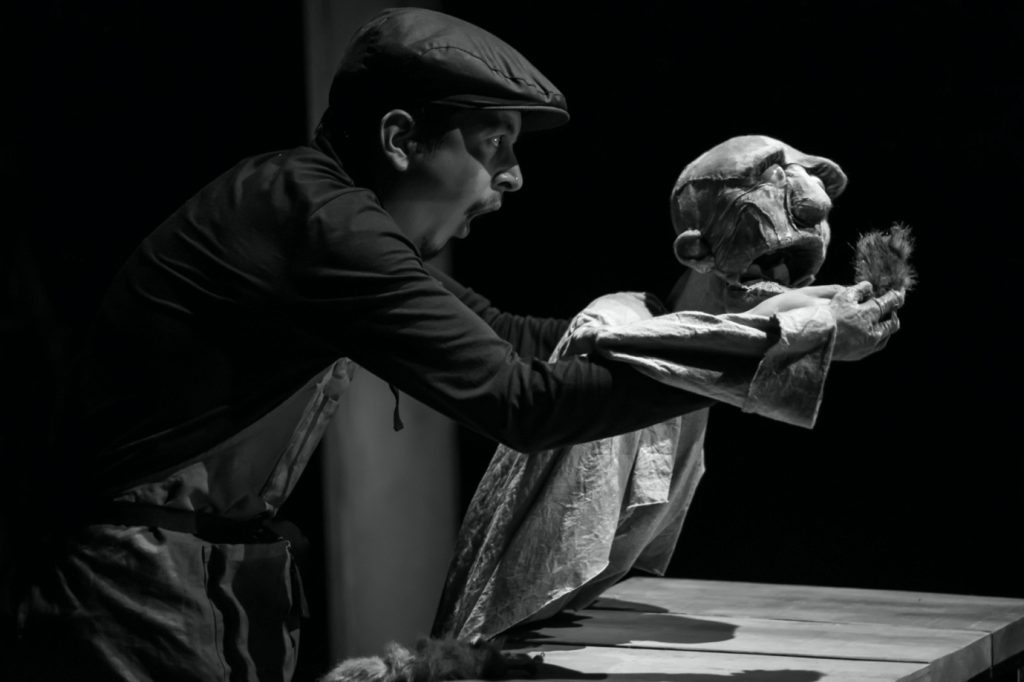© Tobi Poster-Su, 2020. The definitive, peer reviewed and edited version of this article is published in Applied Theatre Research, Volume 8, Number 1, 1 July 2020, pp. 45-56(12), https://doi.org/10.1386/atr_00025_1

“What you are doing is unethical. How can you stand there and say that this human being ate a baby?”
It was one of the more urgent critiques of a work-in-progress that I have encountered throughout a career built on robust and frequent interactions between audience and artistic process. An audience member was taking me to task for what he saw as a flagrant disregard for the legacy of an othered, medically non-typical historical figure. A historical figure for whom, in a partly-documentary work exploring his dehumanisation, objectification and monstering, we had taken the decision to portray as a somewhat monstrous-looking puppet who was indeed presented eating a toddler. Throughout the remainder of the life of the project in question, I have probably returned to this person’s comment more than any other critique of the work.
The project in question was the puppet chamber opera The Depraved Appetite of Tarrare the Freak (2015-2017), for which I co-wrote the libretto and originated the title role as puppeteer. If the above critique had not already indicated this, the title alone should make clear that this is a show which treads some disquieting ethical territory. This article, through reflection on the relationship of the work to the historical record, unpacks some of the ethical issues around presenting the stories of historical Others and explores how puppetry might function as a tool with which to make visible the various ethical and artistic tensions within fact-based theatre.
The complete article can be read here